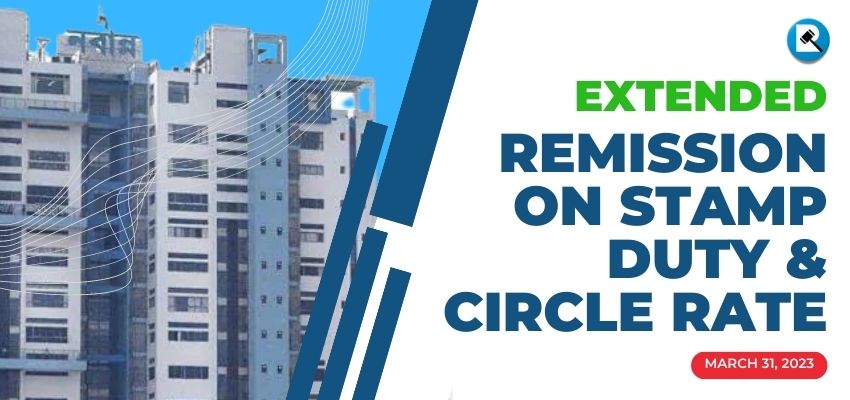Introduction:
Housing cooperative societies are unique organizations that offer affordable housing solutions to members. These societies are governed by a group of elected board members who make decisions on behalf of the members. However, governance and management issues can arise in these societies, including problems with the election process, transparency in decision-making, and conflicts of interest among board members. Inadequate financial planning, budgeting, and control systems can lead to financial mismanagement issues that can threaten the stability and sustainability of the organization. Maintenance and repair issues, legal and regulatory issues, and membership issues are also common challenges faced by these societies. It is essential for housing cooperative societies to address these challenges and have proper planning, management, and funding systems in place to ensure their continued success. Compliance with legal regulations and requirements is also crucial to avoid legal disputes and fines.
Governance and Management Issues:
Governance and management issues that can arise in housing cooperative societies. These issues can include problems with the election process, transparency in decision-making, and conflicts of interest among board members.
Effective governance structures are necessary for the proper functioning of a housing cooperative society. This means that there must be clear rules and regulations in place for decision-making processes, and there should be transparency in the way decisions are made. In addition, board members must act in the best interests of the cooperative and avoid any conflicts of interest that may arise.
However, several factors can lead to governance and management issues in housing cooperatives. For instance, there may be a lack of participation by members in the decision-making process. This lack of engagement can result in decisions being made without sufficient input from all stakeholders, leading to dissatisfaction among members. Additionally, conflicts of interest may arise among board members, making it difficult for them to make unbiased decisions that are in the best interest of the cooperative. Finally, power struggles among board members can also lead to problems with governance and management, as individuals may prioritize their own interests over those of the cooperative.
Overall, it is important for housing cooperative societies to address governance and management issues to ensure effective functioning and to maintain the trust of their members.
Financial Challenges:
In the context of housing cooperative societies, financial challenges can pose a significant threat to the stability and sustainability of the organization. These challenges may include difficulties in securing financing, inadequate budgeting, and financial mismanagement. It is not uncommon for housing cooperative societies to experience financial mismanagement issues due to the absence of proper financial planning, budgeting, and control systems.
The absence of effective financial planning can result in inadequate budgeting, which may cause the society to allocate funds poorly or inaccurately. This, in turn, can lead to financial losses and instability within the society. Additionally, financial mismanagement may occur due to a lack of proper control systems, which can lead to unauthorized transactions, fraud, or embezzlement.
It is the responsibility of the housing cooperative society’s leadership to ensure that proper financial planning, budgeting, and control systems are in place to mitigate these challenges. Failure to do so may result in significant financial losses and harm to the society’s reputation, as well as legal consequences for those responsible. Therefore, it is imperative that housing cooperative societies take these financial challenges seriously and proactively address them to ensure their continued success.
Maintenance and Repair Issues:
Maintenance and repair issues can be a significant challenge for housing cooperative societies. These problems can include delays in addressing issues, inadequate funding for repairs, and disputes over responsibility for repairs. As per the cooperative’s responsibilities, the society must ensure proper maintenance and repair of the property. However, inadequate funds, lack of planning, and mismanagement may result in substandard maintenance and repair services. Inadequate maintenance and repair can lead to a deterioration of the property and ultimately impact the quality of life of its occupants. Therefore, it is essential to have proper planning, management, and funding systems in place to avoid such issues.
Legal and Regulatory Issues:
Housing cooperative societies are required to comply with various legal and regulatory requirements, including zoning regulations, building codes, and tax laws. Failure to comply with these regulations can result in fines and legal challenges. Additionally, housing cooperative societies may face disputes with regulatory bodies over various issues such as licensing or permits. Moreover, legal challenges may arise from property ownership and management, including disputes over property rights, leasing agreements, and maintenance obligations. It is important for housing cooperative societies to have proper legal counsel to help navigate these complex legal and regulatory issues to avoid potential legal disputes and ensure compliance with applicable laws and regulations.
Housing cooperative societies must adhere to various regulations and laws to ensure that their operations are legal and compliant. Failure to comply with regulations can result in legal and regulatory issues, such as disputes with regulatory bodies and fines. Additionally, legal challenges may arise concerning property ownership and management, which can be complex and time-consuming to resolve. It is crucial for housing cooperative societies to seek legal guidance and advice to ensure compliance and avoid legal disputes.
Membership Issues:
Membership issues refer to problems that arise among members of the society. These issues can include disputes among members, difficulties in recruiting and retaining members, and challenges related to member participation in decision-making processes. For instance, conflicts may arise between members due to disagreements on issues such as governance, management, and financial matters. In addition, housing cooperative societies may struggle to attract and retain members due to issues such as high membership fees, lack of amenities, or poor maintenance and repair services. These challenges can impact the society’s ability to function effectively and may result in a breakdown of the cooperative structure.
Membership issues are also a common problem that housing cooperative societies face. These issues can arise due to disputes among members, difficulties in recruiting and retaining members, and challenges related to member participation in decision-making processes. For instance, there may be disputes among members regarding the distribution of resources or the allocation of responsibilities. Additionally, the society may struggle to attract new members or retain existing ones due to a lack of effective outreach or poor communication. Finally, some members may feel that their voices are not heard in the decision-making process, leading to a lack of engagement and participation. These issues can have serious consequences for the functioning of the society and must be addressed promptly to ensure the success of the cooperative.
It is important to address these issues and work with the cooperative society to find effective solutions that promote harmony among members and ensure the long-term sustainability of the cooperative.
Legal Compliance Issues:
Housing cooperative societies must comply with a variety of legal regulations and requirements, including those established by state and local laws. These regulations can include requirements for the organization’s structure and governance, financial reporting and management, and compliance with zoning and other land-use regulations. Failure to comply with these laws can result in legal complications, fines, and other penalties. Therefore, it is crucial for housing cooperative societies to stay informed about their legal obligations and take steps to ensure compliance with applicable laws and regulations.
Disputes and Conflict Resolution:
Disputes and conflicts can arise within a housing cooperative society due to various factors such as financial mismanagement, maintenance issues, and other administrative problems. These disputes and conflicts can lead to significant disruptions in the functioning of the society and can affect the welfare of its members. It is essential that effective conflict resolution mechanisms are in place to resolve these disputes promptly, such as a dispute resolution committee or arbitration process. Additionally, the housing cooperative society should have clear policies and procedures in place to handle disputes and conflicts, ensuring that all members are aware of these mechanisms and are willing to use them. Failure to have these mechanisms in place can lead to prolonged legal battles and jeopardize the overall functioning of the society. Therefore, it is crucial for a housing cooperative society to prioritize effective dispute resolution mechanisms to maintain a harmonious environment for all members.
Conclusion:
In conclusion, housing cooperative societies face various challenges that require effective governance, financial management, maintenance and repair services, compliance with legal and regulatory requirements, and addressing membership issues. These challenges can cause significant financial and reputational harm, legal issues, and ultimately impact the quality of life of members. Therefore, it is imperative for cooperative societies to prioritize these challenges and address them proactively to ensure long-term sustainability and success. Effective solutions, including proper planning, management, and funding systems, legal counsel, and member engagement, can help mitigate these challenges and promote harmony among members, leading to a more prosperous and sustainable cooperative society.



